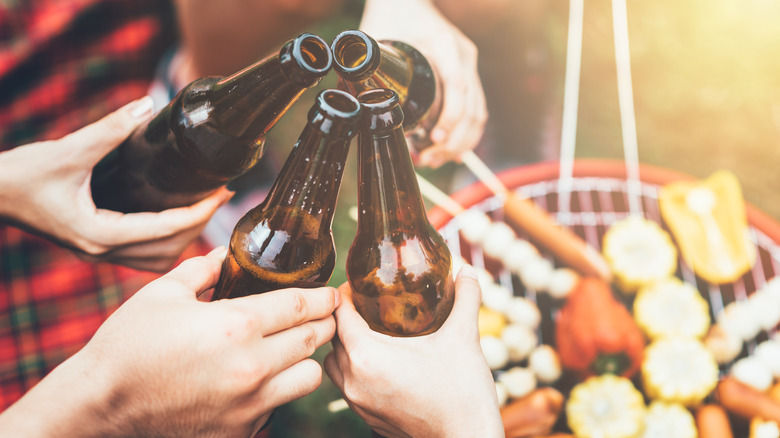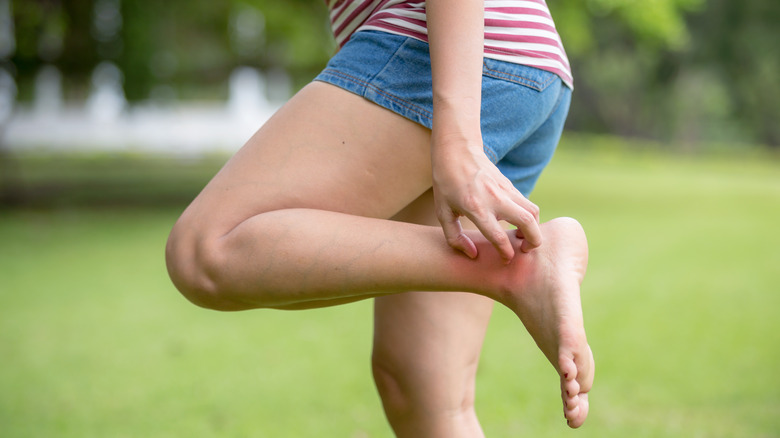Does Alcohol Make You More Attractive To Mosquitos?
You've broken out the bug spray and the repellent candles, but despite your best efforts, the mosquitos continue to outnumber the guests at your backyard barbecue. Of all the things that attract mosquitos, are alcoholic beverages also one of them?
While 85% of our attractiveness to mosquitos is determined by our genes, mosquitos are particularly drawn to the carbon dioxide we emit when we exhale and can be detected by these pests as far as 50 meters away (via WebMD). Those who emit higher levels of carbon dioxide, such as pregnant individuals and adults more so than children, are particularly vulnerable to mosquito bites. These chances increase when combined with heat and movement.
Along with carbon dioxide, heat, and movement, a 2002 study published in the Journal of the American Mosquito Control Association revealed a potential link between alcohol consumption and mosquito attraction. In an examination of 13 volunteers, the chances of mosquito landings significantly increased on those who consumed 350 milliliters of beer, compared to a subject who hadn't drunk any alcohol. So what exactly is it about drinking alcohol that makes us more appetizing to mosquitos?
If you crack open a beer, you may be inviting mosquitos
Some experts feel the influence of beer on mosquito attraction may be due to its effects on the human body. Grayson Brown, director of the Public Health Entomology Laboratory at the University of Kentucky, explained to CBS News how alcohol increases sweat production and body temperature, both of which are appealing to mosquitos. "CO2 comes bubbling out of a beer when it's opened," Brown told CBS News. "CO2 is going to attract mosquitos that feed mostly on mammals. We know that mosquitos use CO2 to get close to the mammals."
But beer may not be the only alcoholic beverage enticing these insects. Researchers behind a 2018 study published in Animal Research International utilized different kinds of palm wine — a sweet, milky alcoholic beverage derived from the sap of palm trees native to countries of Southeast Asia (via ScienceDirect) — to determine the drink's ability to lure mosquitos as a trapping tool for malaria control. It was found that palm wines have the potential to attract 75% of the mosquito species known to carry malaria.
The next time you're enjoying an outdoor barbecue, Brown recommends steering clear of beer and other carbonated beverages to reduce the output of carbon dioxide (via CBS News). Reach for an iced tea or a water instead and help keep yourself further protected by wearing DEET-based bug sprays approved by the U.S. Environmental Protection Agency.


